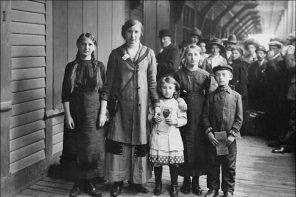Dr. Anthea Butler’s post after the acquittal of George Zimmerman touched a nerve in what Wendell Berry called the hidden wound—that raw, throbbing one that never grows skin thick enough to keep it from puncturing and bleeding at the slightest touch.
The deep wound of our racial history has never passed—no one in America lives without it.
We share this wound in ways that are not easy to comprehend, but very easy to deny. Denial is an understandable response to a wound that will not heal, but so too is frustration and anger. African-American Christians have sought relief from this wound through the balm of their faith. Through a deep conviction of God’s solidarity with those oppressed and criminalized, many of us believe that God wills and enacts liberation for those Frantz Fanon called the wretched of the earth. But such a conviction and claim ain’t easy to carry.
Dr. Butler recalled a seminal text, Is God a White Racist?, written over forty years ago by William R. Jones, which pressed a disturbing question to African-American Christian intellectuals and especially two of the most important American theologians of the twentieth century: James Hal Cone and J. Deotis Roberts. Against the genius of Cone and Roberts who argued that God in Jesus enacts liberation, or liberation’s possibility, for black peoples, Jones pressed the simple request—show me where? Where is this liberation from God for black flesh? Jones’ conclusion was elegant. If God is known by God’s actions, and if I look at what is happening to black people in America (and elsewhere), then the question we must face is a horrible but necessary one: Is God a White Racist? Jones saw that wound that refuses to heal, and Dr. Butler, like so many of us, is yet haunted by that question.
It would be a mistake, however, to read Dr. Butler as calling God a white racist. She has called up the struggle, the struggle of faith for black peoples, who are reminded by the Martin-Zimmerman tragedy, that we have cried out and are crying out to God to help us even as our blood continues to flow and the pain cycles back again. Although Jones’ question is a real one, a serious one, so too has our faith been real and serious. What I learned from Drs. Cone and Roberts is that the question Jones raised was already a question inside of faith, not against faith. Christians follow an ancient Jewish gesture in asking God Why? We follow in the extraordinary legacy of a people who question God, our complaint rising together with our praise, both of which press God to answer for the continuing loss of black life and the seemingly unrelenting hostility against our bodies.
Dr. Butler also points out the contradictions of American Christianity embedded in this legacy. At this very moment, the Christianity of America in all its varied and magnificent forms is yet to reckon with the incredible power of whiteness. Whiteness is not biological fact or a bedrock reality of culture. It’s a way of looking at others (especially people of color) and oneself that grew powerful in America as arriving immigrants sought to shed perceived cultural impediments to their full assimilation into a white American identity.
American Christians must take on the difficult work of understanding how whiteness has been woven like a cancer into their Christianity. It is the power of that whiteness to shape our social worlds—defining good and bad, beautiful and ugly, true and false—that is at heart the reason this wound will not heal. It is the reason why some people deny our grotesque racial history even as it stares them in the face with the case of George Zimmerman.
Denial is one option in the face of pain, but there is another: Struggle. Enter the struggle against our racial history and against the concept of whiteness that covers American Christianity like the Kudzu that blankets our landscape smothering any species in its path. The senseless death of Trayvon Martin and the senseless menagerie of judicial logics when it comes to justice and fairness for people of color are constant reminders of the struggle of faith. What keeps me from giving up even as I see yet more spilled blood and spoiled lives is the simple fact that I am not struggling alone. Indeed my faith comes from a God who, found in human flesh, struggled in the face of suffering, and torture, and death, and who drew my questions and frustrations into the divine life before I would know them as mine. God is known by God’s actions.
The only way our racial wound can be healed is precisely through shared struggle. Rather than denial, or imagining that we can sit comfortably in what Roland Barthes called a factitious, safe “middle” position where we blame “both sides” of America’s racial divide for our ills, we need people who will take up the struggle. We especially need Christians who believe that God is known not only by God’s gracious actions of solidarity with those feared and despised in this world, but also by our actions of solidarity.
Our struggle is not against flesh and blood, not against the George Zimmermans of this world, but against those powers and principalities that teach the George Zimmermans of this world that weapons are gifts given by god, that violence is a good quick solution to our fears, and that there is a God-given natural racial order to this world. Anyone who accepts these precepts is following a god who is powerful, flexible and moves around America as if he owns it. That god is, as Dr. Butler pointed out, a white racist.




